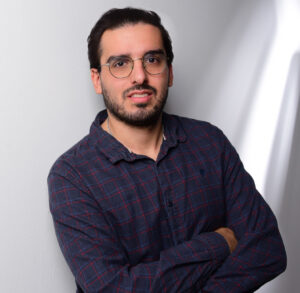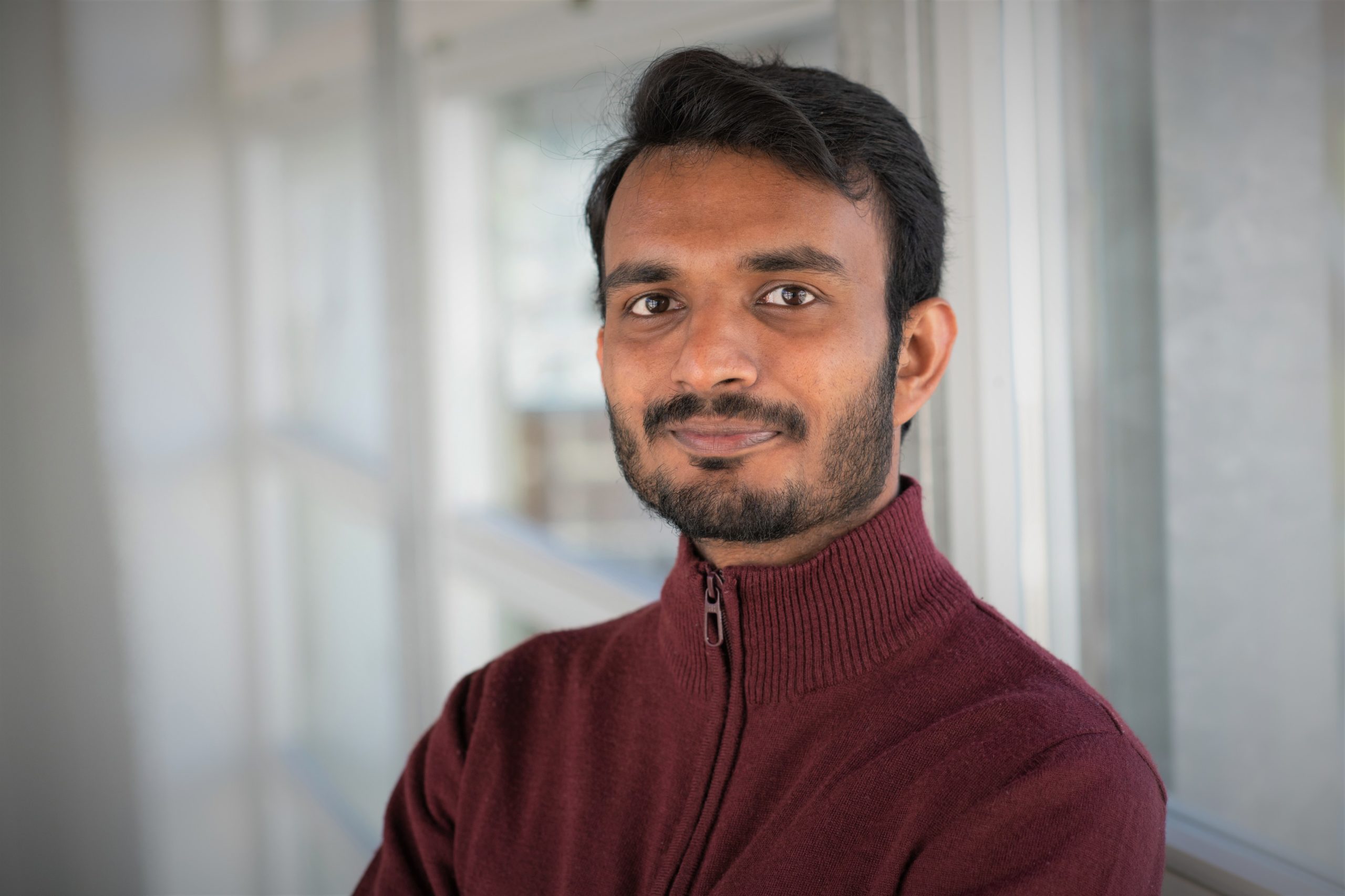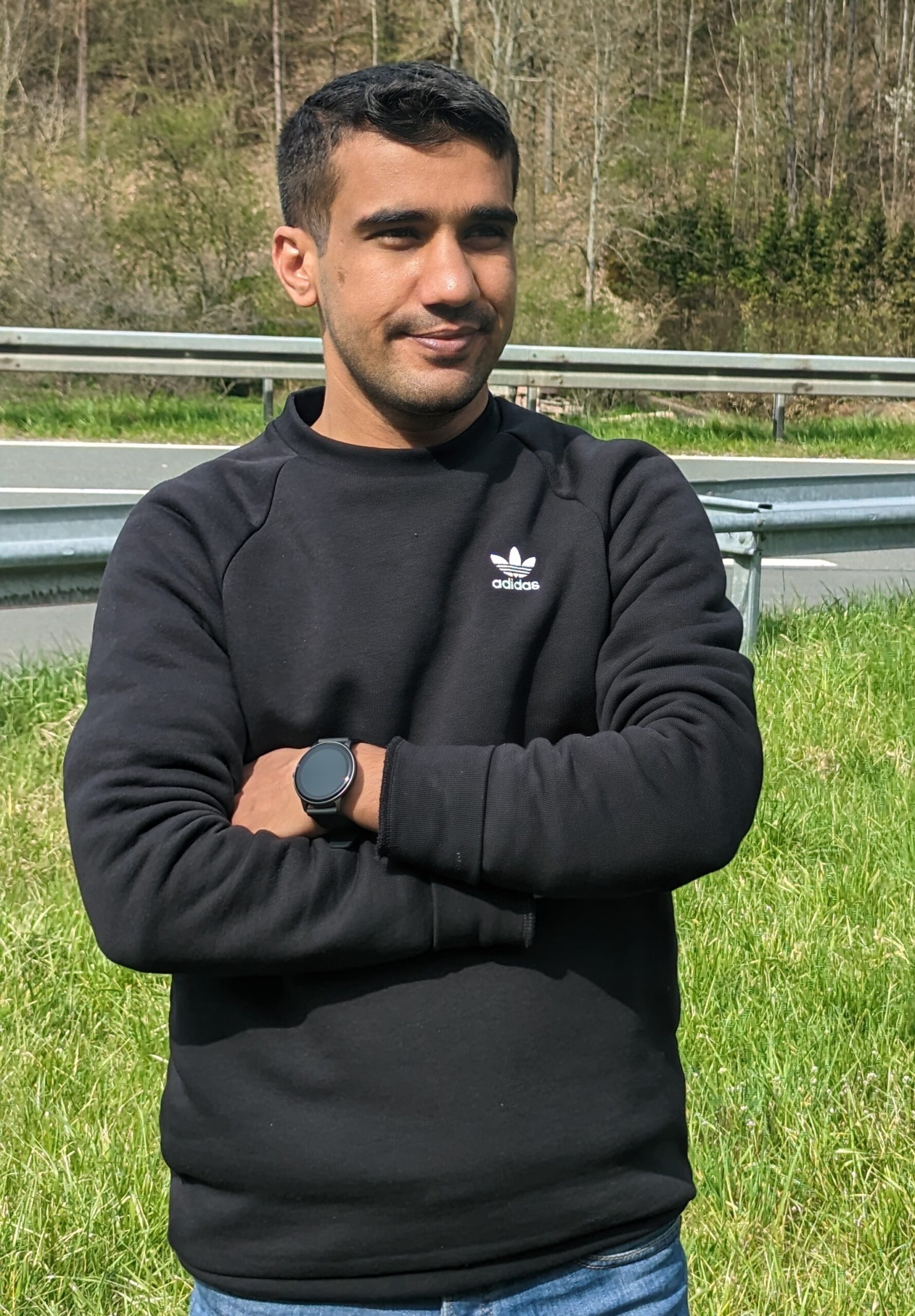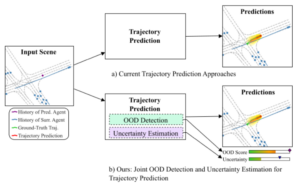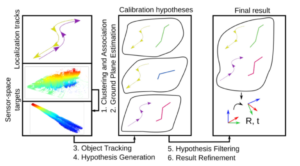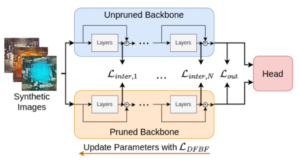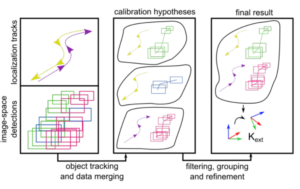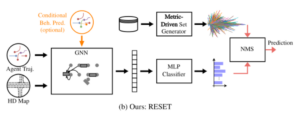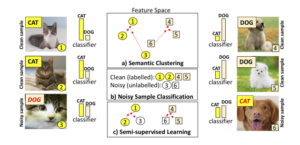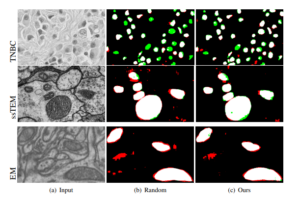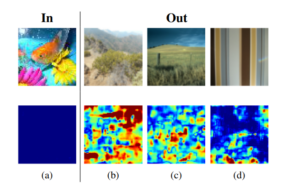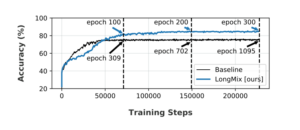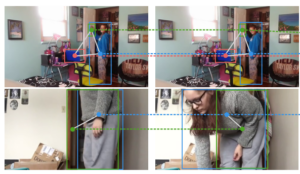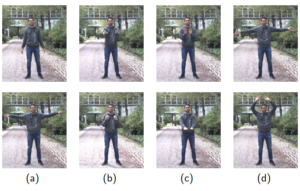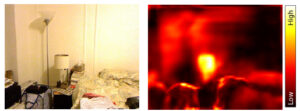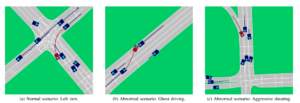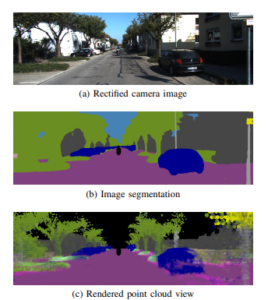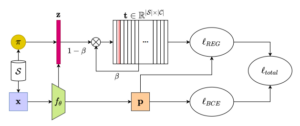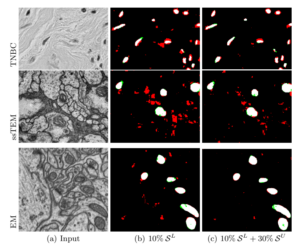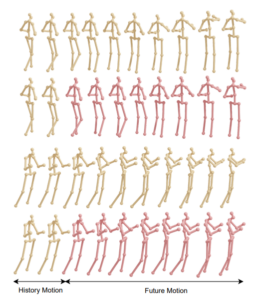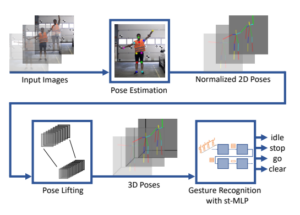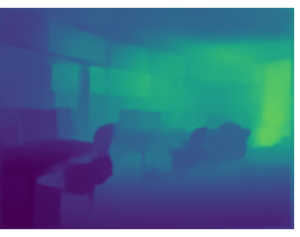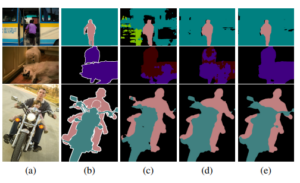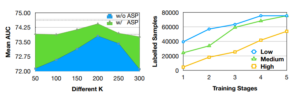Vasileios Belagiannis
Prof. Dr. Vasileios Belagiannis
Vasileios Belagiannis is Professor at the Faculty of Engineering of the Friedrich-Alexander-Universität Erlangen-Nürnberg. He holds a degree in engineering (Greece, 2009) from Democritus University of Thrace, Engineering School of Xanthi and M.Sc. in Computational Science and Engineering from TU München (Germany, 2011). He completed his doctoral studies at TU München (2015) and then continued as post-doctoral research assistant at the University of Oxford (Visual Geometry Group). Prior to joining Friedrich-Alexander-Universität Erlangen-Nürnberg, he spent time in industry, working at OSRAM, and then Ulm University and Otto von Guericke University Magdeburg.
An updated list of publications can be found on Google Scholar.
I am always looking for highly motivated students to undertake a PhD.
Recent News:
- Summer Semester 2025 course offers:
- Perception in Robotics
- Advanced Topics in Deep Learning
- Seminar on Selected Topics in Machine Learning
- Lab Course Machine Learning in Signal Processing
- Selected publications:
- Check out our new work on gradient-based uncertainty estimation: Revisiting Gradient-based Uncertainty for Monocular Depth Estimation (IEEE TPAMI 2025).
- New work on estimating uncertainty of generative model: Diffusion Model Guided Sampling with Pixel-Wise Aleatoric Uncertainty Estimation (IEEE WACV 2025).
- New work on semi-supervised learning for monocular depth estimation: Consistency Regularisation for Unsupervised Domain Adaptation in Monocular Depth Estimation (published in CoLLAs 2024).
- Check out our new work on diffusion models for neural architecture search: Multi-conditioned Graph Diffusion for Neural Architecture Search (published in Transactions on Machine Learning Research, 03/2024).
Prof. Belagiannis leads the Machine Learning & Perception (MLP) group. The MLP group focuses on machine learning, particularly deep learning, for both fundamental and applied research. Current research includes generative models, anomaly detection, uncertainty estimation, out-of-distribution detection, few-shot learning, noisy label learning, and hardware-aware machine learning such as model compression and neural architecture search. Applications range from automated driving, computer vision and medical image analysis to signal processing and robotics.
2025
- , , , , , , :
Machine learning-based prediction of quality characteristics in joining processes to minimize destructive testing: A case study on crimp connections
In: Procedia CIRP 134 (2025), p. 163-168
ISSN: 2212-8271
DOI: 10.1016/j.procir.2025.03.030
BibTeX: Download - , , :
Revisiting Gradient-Based Uncertainty for Monocular Depth Estimation
In: IEEE Transactions on Pattern Analysis and Machine Intelligence (2025)
ISSN: 0162-8828
DOI: 10.1109/TPAMI.2025.3541964
BibTeX: Download - , , , , , :
ItTakesTwo: Leveraging Peer Representations for Semi-supervised LiDAR Semantic Segmentation
18th European Conference on Computer Vision, ECCV 2024 (Milan, 29. September 2024 - 4. October 2024)
In: Aleš Leonardis, Elisa Ricci, Stefan Roth, Olga Russakovsky, Torsten Sattler, Gül Varol (ed.): Lecture Notes in Computer Science (including subseries Lecture Notes in Artificial Intelligence and Lecture Notes in Bioinformatics) 2025
DOI: 10.1007/978-3-031-73232-4_5
BibTeX: Download
2024
- , , , , :
Multi-conditioned Graph Diffusion for Neural Architecture Search
In: Transactions on Machine Learning Research (2024)
ISSN: 2835-8856
Open Access: https://openreview.net/forum?id=5VotySkajV
URL: https://openreview.net/forum?id=5VotySkajV
BibTeX: Download - , , , , , :
Confidence Estimation and Boosting for Dynamic-Comparator Transient-Noise Analysis
22nd IEEE Interregional NEWCAS Conference, NEWCAS 2024 (Sherbrooke, QC, 16. June 2024 - 19. June 2024)
In: 2024 22nd IEEE Interregional NEWCAS Conference (NEWCAS) 2024
DOI: 10.1109/NewCAS58973.2024.10666354
BibTeX: Download - , , , , :
Differentiable Cost Model for Neural-Network Accelerator Regarding Memory Hierarchy
In: IEEE Transactions on Circuits and Systems I-Regular Papers (2024)
ISSN: 1549-8328
DOI: 10.1109/TCSI.2024.3476534
BibTeX: Download - , , , , :
Too-Hot-to-Handle: Insights into Temperature and Noise Hyperparameters for Differentiable Neural-Architecture-Searches
6th IEEE International Conference on AI Circuits and Systems (AICAS 2024) (Abu Dhabi, 22. April 2024 - 25. April 2024)
In: 2024 IEEE 6th International Conference on AI Circuits and Systems (AICAS) 2024
DOI: 10.1109/AICAS59952.2024.10595971
BibTeX: Download - , , , :
Consistency Regularisation for Unsupervised Domain Adaptation in Monocular Depth Estimation
Third Conference on Lifelong Learning Agents (CoLLAs 2024) (Polo Didattico San Rossore 1938 building of the University of Pisa, Italy., 29. July 2024 - 1. August 2024)
BibTeX: Download - , , , , , , :
Translation Consistent Semi-supervised Segmentation for 3D Medical Images
In: IEEE Transactions on Medical Imaging (2024)
ISSN: 0278-0062
DOI: 10.1109/TMI.2024.3468896
BibTeX: Download - , , :
Infrastructure-based Perception with Cameras and Radars for Cooperative Driving Scenarios
35th IEEE Intelligent Vehicles Symposium, IV 2024 (Jeju Island, 2. June 2024 - 5. June 2024)
In: IEEE Intelligent Vehicles Symposium, Proceedings 2024
DOI: 10.1109/IV55156.2024.10588604
BibTeX: Download
2023
- , , , :
Localizing Spatial Information in Neural Spatiospectral Filters
2023 31st European Signal Processing Conference (EUSIPCO) (Helsinki, Finland, 4. September 2023 - 8. September 2023)
DOI: 10.23919/EUSIPCO58844.2023.10289820
URL: https://ieeexplore.ieee.org/document/10289820
BibTeX: Download - , , , , :
Knowing What to Label for Few Shot Microscopy Image Cell Segmentation
23rd IEEE/CVF Winter Conference on Applications of Computer Vision, WACV 2023 (Waikoloa, HI, USA, 3. January 2023 - 7. January 2023)
In: Proceedings - 2023 IEEE Winter Conference on Applications of Computer Vision, WACV 2023 2023
DOI: 10.1109/WACV56688.2023.00356
BibTeX: Download - , , :
SelectNAdapt: Support Set Selection for Few-Shot Domain Adaptation
2023 IEEE/CVF International Conference on Computer Vision Workshops, ICCVW 2023 (Paris, FRA, 2. October 2023 - 6. October 2023)
In: Proceedings - 2023 IEEE/CVF International Conference on Computer Vision Workshops, ICCVW 2023 2023
DOI: 10.1109/ICCVW60793.2023.00104
BibTeX: Download - , , , :
DATA-FREE BACKBONE FINE-TUNING FOR PRUNED NEURAL NETWORKS
31st European Signal Processing Conference, EUSIPCO 2023 (Helsinki, FIN, 4. September 2023 - 8. September 2023)
In: European Signal Processing Conference 2023
DOI: 10.23919/EUSIPCO58844.2023.10290102
BibTeX: Download - , , :
Pedestrian Environment Model for Automated Driving
26th IEEE International Conference on Intelligent Transportation Systems, ITSC 2023 (Bilbao, 24. September 2023 - 28. September 2023)
In: IEEE Conference on Intelligent Transportation Systems, Proceedings, ITSC 2023
DOI: 10.1109/ITSC57777.2023.10422032
BibTeX: Download - , :
Heatmap-based Out-of-Distribution Detection
23rd IEEE/CVF Winter Conference on Applications of Computer Vision, WACV 2023 (Waikoloa, HI, USA, 3. January 2023 - 7. January 2023)
In: Proceedings - 2023 IEEE Winter Conference on Applications of Computer Vision, WACV 2023 2023
DOI: 10.1109/WACV56688.2023.00263
BibTeX: Download - , , :
Out-of-Distribution Detection for Monocular Depth Estimation
2023 IEEE/CVF International Conference on Computer Vision, ICCV 2023 (Paris, 2. October 2023 - 6. October 2023)
In: Proceedings of the IEEE International Conference on Computer Vision 2023
DOI: 10.1109/ICCV51070.2023.00183
BibTeX: Download - , , , , , , :
Residual Pattern Learning for Pixel-wise Out-of-Distribution Detection in Semantic Segmentation
2023 IEEE/CVF International Conference on Computer Vision, ICCV 2023 (Paris, 2. October 2023 - 6. October 2023)
In: 2023 IEEE/CVF International Conference on Computer Vision (ICCV) 2023
DOI: 10.1109/ICCV51070.2023.00112
BibTeX: Download - , , , , , :
RESET: Revisiting Trajectory Sets for Conditional Behavior Prediction
34th IEEE Intelligent Vehicles Symposium, IV 2023 (Anchorage, AK, USA, 4. June 2023 - 7. June 2023)
In: IEEE Intelligent Vehicles Symposium, Proceedings 2023
DOI: 10.1109/IV55152.2023.10186587
BibTeX: Download - , :
ParticleAugment: Sampling-based data augmentation
In: Computer Vision and Image Understanding 228 (2023), Article No.: 103633
ISSN: 1077-3142
DOI: 10.1016/j.cviu.2023.103633
BibTeX: Download - , , :
Automated Automotive Radar Calibration With Intelligent Vehicles
31st European Signal Processing Conference, EUSIPCO 2023 (Helsinki, FIN, 4. September 2023 - 8. September 2023)
In: European Signal Processing Conference 2023
DOI: 10.23919/EUSIPCO58844.2023.10289982
BibTeX: Download - , , , , :
Joint Out-of-Distribution Detection and Uncertainty Estimation for Trajectory Prediction
2023 IEEE/RSJ International Conference on Intelligent Robots and Systems, IROS 2023 (Detroit, MI, 1. October 2023 - 5. October 2023)
In: 2023 IEEE/RSJ International Conference on Intelligent Robots and Systems (IROS) 2023
DOI: 10.1109/IROS55552.2023.10341616
BibTeX: Download
2022
- , , , , , :
A Ground Truth System for Radar Measurements of Humans
14th German Microwave Conference, GeMiC 2022 (Ulm, DEU, 16. May 2022 - 18. May 2022)
In: 2022 German Microwave Conference, GeMiC 2022 2022
BibTeX: Download - , , , , :
Multi-Task Edge Prediction in Temporally-Dynamic Video Graphs
33rd British Machine Vision Conference Proceedings, BMVC 2022 (London, GBR, 21. November 2022 - 24. November 2022)
In: BMVC 2022 - 33rd British Machine Vision Conference Proceedings 2022
BibTeX: Download
2021
- , , :
Learning Temporal 3D Human Pose Estimation with Pseudo-Labels
17th IEEE International Conference on Advanced Video and Signal-Based Surveillance, AVSS 2021 (Virtual, Online, USA, 16. November 2021 - 19. November 2021)
In: AVSS 2021 - 17th IEEE International Conference on Advanced Video and Signal-Based Surveillance 2021
DOI: 10.1109/AVSS52988.2021.9663755
BibTeX: Download - , , , :
Self-Supervised 3D Human Pose Estimation with Multiple-View Geometry
16th IEEE International Conference on Automatic Face and Gesture Recognition, FG 2021 (Virtual, Jodhpur, IND, 15. December 2021 - 18. December 2021)
In: Vitomir Struc, Marija Ivanovska (ed.): Proceedings - 2021 16th IEEE International Conference on Automatic Face and Gesture Recognition, FG 2021 2021
DOI: 10.1109/FG52635.2021.9667074
BibTeX: Download - , , , :
Adversarial signal denoising with encoder-decoder networks
28th European Signal Processing Conference, EUSIPCO 2020 (Amsterdam, NLD, 24. August 2020 - 28. August 2020)
In: European Signal Processing Conference 2021
DOI: 10.23919/Eusipco47968.2020.9287738
BibTeX: Download - , , , , :
Nonlinearity Modeling for Mixed-Signal Inference Accelerators in Training Frameworks
28th IEEE International Conference on Electronics, Circuits, and Systems, ICECS 2021 (Dubai, ARE, 28. November 2021 - 1. December 2021)
In: 2021 28th IEEE International Conference on Electronics, Circuits, and Systems, ICECS 2021 - Proceedings 2021
DOI: 10.1109/ICECS53924.2021.9665503
BibTeX: Download - , , , :
Few-Shot Microscopy Image Cell Segmentation
European Conference on Machine Learning and Knowledge Discovery in Databases, ECML PKDD 2020 (Virtual, Online, 14. September 2020 - 18. September 2020)
In: Yuxiao Dong, Dunja Mladenic, Craig Saunders (ed.): Lecture Notes in Computer Science (including subseries Lecture Notes in Artificial Intelligence and Lecture Notes in Bioinformatics) 2021
DOI: 10.1007/978-3-030-67670-4_9
BibTeX: Download - , , :
Attention-based Vehicle Self-Localization with HD Feature Maps
2021 IEEE International Intelligent Transportation Systems Conference, ITSC 2021 (Indianapolis, IN, USA, 19. September 2021 - 22. September 2021)
In: IEEE Conference on Intelligent Transportation Systems, Proceedings, ITSC 2021
DOI: 10.1109/ITSC48978.2021.9564726
BibTeX: Download - , , :
Point transformer
In: IEEE Access 9 (2021), p. 134826-134840
ISSN: 2169-3536
DOI: 10.1109/ACCESS.2021.3116304
BibTeX: Download - , , , , , , , :
Forecasting People Trajectories and Head Poses by Jointly Reasoning on Tracklets and Vislets
In: IEEE Transactions on Pattern Analysis and Machine Intelligence 43 (2021), p. 1267-1278
ISSN: 0162-8828
DOI: 10.1109/TPAMI.2019.2949414
BibTeX: Download - , , :
Visual Domain Adaptation for Monocular Depth Estimation on Resource-Constrained Hardware
18th IEEE/CVF International Conference on Computer Vision Workshops, ICCVW 2021 (Virtual, Online, CAN, 11. October 2021 - 17. October 2021)
In: Proceedings of the IEEE International Conference on Computer Vision 2021
DOI: 10.1109/ICCVW54120.2021.00111
BibTeX: Download - , , , , , :
Self-supervised Mean Teacher for Semi-supervised Chest X-Ray Classification
12th International Workshop on Machine Learning in Medical Imaging, MLMI 2021, held in conjunction with 24th International Conference on Medical Image Computing and Computer Assisted Intervention, MICCAI 2021 (Virtual, 27. September 2021 - 27. September 2021)
In: Chunfeng Lian, Xiaohuan Cao, Islem Rekik, Xuanang Xu, Pingkun Yan (ed.): Lecture Notes in Computer Science (including subseries Lecture Notes in Artificial Intelligence and Lecture Notes in Bioinformatics) 2021
DOI: 10.1007/978-3-030-87589-3_44
BibTeX: Download - , , , , :
EvidentialMix: Learning with combined open-set and closed-set noisy labels
2021 IEEE Winter Conference on Applications of Computer Vision, WACV 2021 (Virtual, 5. January 2021 - 9. January 2021)
In: Proceedings - 2021 IEEE Winter Conference on Applications of Computer Vision, WACV 2021 2021
DOI: 10.1109/WACV48630.2021.00365
BibTeX: Download - , , , :
Dynamic Occupancy Grid Mapping with Recurrent Neural Networks
2021 IEEE International Conference on Robotics and Automation, ICRA 2021 (Xi'an, CHN, 30. May 2021 - 5. June 2021)
In: Proceedings - IEEE International Conference on Robotics and Automation 2021
DOI: 10.1109/ICRA48506.2021.9561375
BibTeX: Download
2020
- , , , , :
DeepCLR: Correspondence-Less Architecture for Deep End-to-End Point Cloud Registration
23rd IEEE International Conference on Intelligent Transportation Systems, ITSC 2020 (Rhodes, GRC, 20. September 2020 - 23. September 2020)
In: 2020 IEEE 23rd International Conference on Intelligent Transportation Systems, ITSC 2020 2020
DOI: 10.1109/ITSC45102.2020.9294279
BibTeX: Download - , , , :
Motion Estimation in Occupancy Grid Maps in Stationary Settings Using Recurrent Neural Networks
2020 IEEE International Conference on Robotics and Automation, ICRA 2020 (Paris, FRA, 31. May 2020 - 31. August 2020)
In: Proceedings - IEEE International Conference on Robotics and Automation 2020
DOI: 10.1109/ICRA40945.2020.9196702
BibTeX: Download - , , , , , , :
Multiple trajectory prediction with deep temporal and spatial convolutional neural networks
2020 IEEE/RSJ International Conference on Intelligent Robots and Systems, IROS 2020 (Las Vegas, NV, USA, 24. October 2020 - 24. January 2021)
In: IEEE International Conference on Intelligent Robots and Systems 2020
DOI: 10.1109/IROS45743.2020.9341327
BibTeX: Download - , , :
Deep Learning versus High-order Recurrent Neural Network based Decoding for Convolutional Codes
2020 IEEE Global Communications Conference, GLOBECOM 2020 (Virtual, Taipei, TWN, 7. December 2020 - 11. December 2020)
In: 2020 IEEE Global Communications Conference, GLOBECOM 2020 - Proceedings 2020
DOI: 10.1109/GLOBECOM42002.2020.9348117
BibTeX: Download - , , , :
Traffic control gesture recognition for autonomous vehicles
2020 IEEE/RSJ International Conference on Intelligent Robots and Systems, IROS 2020 (Las Vegas, NV, USA, 24. October 2020 - 24. January 2021)
In: IEEE International Conference on Intelligent Robots and Systems 2020
DOI: 10.1109/IROS45743.2020.9341214
BibTeX: Download
2019
- , , :
Adversarial network compression
15th European Conference on Computer Vision, ECCV 2018 (Munich, 8. September 2018 - 14. September 2018)
In: Laura Leal-Taixé, Stefan Roth (ed.): Lecture Notes in Computer Science (including subseries Lecture Notes in Artificial Intelligence and Lecture Notes in Bioinformatics) 2019
DOI: 10.1007/978-3-030-11018-5_37
BibTeX: Download - , , , , :
DeepLocalization: Landmark-based Self-Localization with Deep Neural Networks
2019 IEEE Intelligent Transportation Systems Conference, ITSC 2019 (Auckland, NZL, 27. October 2019 - 30. October 2019)
In: 2019 IEEE Intelligent Transportation Systems Conference, ITSC 2019 2019
DOI: 10.1109/ITSC.2019.8917005
BibTeX: Download - , , , , :
LACI: Low-effort Automatic Calibration of Infrastructure Sensors
2019 IEEE Intelligent Transportation Systems Conference, ITSC 2019 (Auckland, NZL, 27. October 2019 - 30. October 2019)
In: 2019 IEEE Intelligent Transportation Systems Conference, ITSC 2019 2019
DOI: 10.1109/ITSC.2019.8917310
BibTeX: Download
2018
- , , , , , :
Convolutional neural networks for real-time epileptic seizure detection
In: Computer Methods in Biomechanics and Biomedical Engineering : Imaging & Visualization 6 (2018), p. 264-269
ISSN: 2168-1163
DOI: 10.1080/21681163.2016.1141062
BibTeX: Download - , , , , , , , :
1st MICCAI workshop on deep learning in medical image analysis
In: Computer Methods in Biomechanics and Biomedical Engineering : Imaging & Visualization 6 (2018), p. 241-242
ISSN: 2168-1163
DOI: 10.1080/21681163.2018.1457242
BibTeX: Download
2017
- , :
Recurrent Human Pose Estimation
12th IEEE International Conference on Automatic Face and Gesture Recognition, FG 2017 (Washington, DC, 30. May 2017 - 3. June 2017)
In: Proceedings - 12th IEEE International Conference on Automatic Face and Gesture Recognition, FG 2017 - 1st International Workshop on Adaptive Shot Learning for Gesture Understanding and Production, ASL4GUP 2017, Biometrics in the Wild, Bwild 2017, Heterogeneous Face Recognition, HFR 2017, Joint Challenge on Dominant and Complementary Emotion Recognition Using Micro Emotion Features and Head-Pose Estimation, DCER and HPE 2017 and 3rd Facial Expression Recognition and Analysis Challenge, FERA 2017 2017
DOI: 10.1109/FG.2017.64
BibTeX: Download - , , , , , , , :
Preface DLMIA 2017
In: Tal Arbel, M. Jorge Cardoso (ed.): Deep Learning in Medical Image Analysis and Multimodal Learning for Clinical Decision Support - 3rd International Workshop, DLMIA 2017 and 7th International Workshop, ML-CDS 2017 Held in Conjunction with MICCAI 2017, Proceedings, Springer Verlag, 2017 (Lecture Notes in Computer Science (including subseries Lecture Notes in Artificial Intelligence and Lecture Notes in Bioinformatics), Vol.10553 LNCS)
BibTeX: Download
2016
- , , , , , :
AggNet: Deep Learning From Crowds for Mitosis Detection in Breast Cancer Histology Images
In: IEEE Transactions on Medical Imaging 35 (2016), p. 1313-1321
ISSN: 0278-0062
DOI: 10.1109/TMI.2016.2528120
BibTeX: Download - , , , , :
Automatic 3D reconstruction of electrophysiology catheters from two-view monoplane C-arm image sequences
In: International Journal of Computer Assisted Radiology and Surgery 11 (2016), p. 1319-1328
ISSN: 1861-6410
DOI: 10.1007/s11548-015-1325-8
BibTeX: Download - , , , , , :
3D Pictorial Structures Revisited: Multiple Human Pose Estimation
In: IEEE Transactions on Pattern Analysis and Machine Intelligence 38 (2016), p. 1929-1942
ISSN: 0162-8828
DOI: 10.1109/TPAMI.2015.2509986
BibTeX: Download - , , , , , , , , , , , :
Parsing human skeletons in an operating room
In: Machine Vision and Applications 27 (2016), p. 1035-1046
ISSN: 1432-1769
DOI: 10.1007/s00138-016-0792-4
BibTeX: Download - , , , , :
Deeper depth prediction with fully convolutional residual networks
4th International Conference on 3D Vision, 3DV 2016 (Stanford, CA, USA, 25. October 2016 - 28. October 2016)
In: Proceedings - 2016 4th International Conference on 3D Vision, 3DV 2016 2016
DOI: 10.1109/3DV.2016.32
BibTeX: Download - , , , , , , , :
Real-time localization of articulated surgical instruments in retinal microsurgery
In: Medical image analysis 34 (2016), p. 82-100
ISSN: 1361-8423
DOI: 10.1016/j.media.2016.05.003
BibTeX: Download
2015
- , , , :
Robust optimization for deep regression
15th IEEE International Conference on Computer Vision, ICCV 2015 (Santiago, 11. December 2015 - 18. December 2015)
In: Proceedings of the IEEE International Conference on Computer Vision 2015
DOI: 10.1109/ICCV.2015.324
BibTeX: Download - , , , , , :
Multiple human pose estimation with temporally consistent 3D pictorial structures
13th European Conference on Computer Vision, ECCV 2014 (Zurich, CHE, 6. September 2014 - 12. September 2014)
In: Michael M. Bronstein, Carsten Rother, Lourdes Agapito (ed.): Lecture Notes in Computer Science (including subseries Lecture Notes in Artificial Intelligence and Lecture Notes in Bioinformatics) 2015
DOI: 10.1007/978-3-319-16178-5_52
BibTeX: Download - , , , , :
OMG: Introducing optical myography as a new human machine interface for hand amputees
14th IEEE/RAS-EMBS International Conference on Rehabilitation Robotics, ICORR 2015 (Singapore, 11. August 2015 - 14. August 2015)
In: David Braun, Haoyong Yu, Domenico Campolo (ed.): IEEE International Conference on Rehabilitation Robotics 2015
DOI: 10.1109/ICORR.2015.7281324
BibTeX: Download - , , , , , , , :
Surgical tool tracking and pose estimation in retinal microsurgery
DOI: 10.1007/978-3-319-24553-9_33
BibTeX: Download - , , , :
Revisiting robust visual tracking using pixel-wise posteriors
10th International Conference on Computer Vision Systems, ICVS 2015 (Copenhagen, 6. July 2015 - 9. July 2015)
In: Antonios Gasteratos, Lazaros Nalpantidis, Volker Kruger, Jan-Olof Eklundh (ed.): Lecture Notes in Computer Science (including subseries Lecture Notes in Artificial Intelligence and Lecture Notes in Bioinformatics) 2015
DOI: 10.1007/978-3-319-20904-3_26
BibTeX: Download - , , , , , :
Anatomic-landmark detection using graphical context modelling
12th IEEE International Symposium on Biomedical Imaging, ISBI 2015 (Brooklyn, NY, USA, 16. April 2015 - 19. April 2015)
In: Proceedings - International Symposium on Biomedical Imaging 2015
DOI: 10.1109/ISBI.2015.7164114
BibTeX: Download - , , , , , , , :
Random ferns for multiple target tracking in microscopic retina image sequences
12th IEEE International Symposium on Biomedical Imaging, ISBI 2015 (Brooklyn, NY, USA, 16. April 2015 - 19. April 2015)
In: Proceedings - International Symposium on Biomedical Imaging 2015
DOI: 10.1109/ISBI.2015.7163851
BibTeX: Download
2014
- , , , :
Holistic human pose estimation with regression forests
8th International Conference on Articulated Motion and Deformable Objects, AMDO 2014 (ESP, 16. July 2014 - 18. July 2014)
In: Lecture Notes in Computer Science (including subseries Lecture Notes in Artificial Intelligence and Lecture Notes in Bioinformatics) 2014
DOI: 10.1007/978-3-319-08849-5_3
BibTeX: Download - , , , , , :
3D pictorial structures for multiple human pose estimation
27th IEEE Conference on Computer Vision and Pattern Recognition, CVPR 2014 (Columbus, OH, USA, 23. June 2014 - 28. June 2014)
In: Proceedings of the IEEE Computer Society Conference on Computer Vision and Pattern Recognition 2014
DOI: 10.1109/CVPR.2014.216
BibTeX: Download - , , , :
Fully automatic catheter localization in C-arm images using ℓ1-sparse coding
17th International Conference on Medical Image Computing and Computer-Assisted Intervention, MICCAI 2014 (USA, 14. September 2014 - 18. September 2014)
In: Lecture Notes in Computer Science (including subseries Lecture Notes in Artificial Intelligence and Lecture Notes in Bioinformatics) 2014
DOI: 10.1007/978-3-319-10470-6_71
BibTeX: Download - , , , :
Fully automatic catheter localization in C-arm images using ł1-sparse coding
International Conference on Medical Image Computing and Computer-Assisted Intervention
BibTeX: Download
2012
- , , , :
Segmentation based particle filtering for real-time 2D object tracking
12th European Conference on Computer Vision, ECCV 2012 (ITA, 7. October 2012 - 13. October 2012)
In: Lecture Notes in Computer Science (including subseries Lecture Notes in Artificial Intelligence and Lecture Notes in Bioinformatics) 2012
DOI: 10.1007/978-3-642-33765-9_60
BibTeX: Download
2009
- , , , , , :
The vision system of the ACROBOTER project
2nd International Conference on Intelligent Robotics and Applications, ICIRA 2009 (SGP, 16. December 2009 - 18. December 2009)
In: Lecture Notes in Computer Science (including subseries Lecture Notes in Artificial Intelligence and Lecture Notes in Bioinformatics) 2009
DOI: 10.1007/978-3-642-10817-4_94
BibTeX: Download
-
Bavarian Advanced Resolution Radar
(Third Party Funds Group – Sub project)
Overall project: Bavarian Advanced Resolution Radar
Term: 1. February 2025 - 31. January 2028
Funding source: Bayerisches Staatsministerium für Wirtschaft, Landesentwicklung und Energie (StMWi) (seit 2018) -
SUSTAINET-inNOvAte: Nachhaltige Technologien für fortschrittliche resiliente und energieeffiziente Netze - Reibungslose, sichere und widerstandsfähige Netze für die dynamische digitale Welt
(Third Party Funds Group – Sub project)
Overall project: Sustainable Technologies for Advanced Resilient and Energy-Efficient Networks - Frictionless, secure, and resilient communication networks for the dynamic digital world
Term: 1. January 2025 - 31. December 2027
Funding source: BMBF / Verbundprojekt -
Always-on Deep Neural Networks
(Third Party Funds Single)
Term: 1. March 2023 - 28. February 2026
Funding source: DFG-Einzelförderung / Sachbeihilfe (EIN-SBH)Computer vision contributes in creating visual priors as self-contained tasks or input to another system. In the context of autonomous navigation, the system can be a mobile agent that not only relies on the raw sensory inputs, but also on computer vision algorithms for understanding the environment. Recent studies on embodied agents show that an agent acts more accurately when visual priors such as semantic segmentation, depth estimation are provided next to the raw input data. Producing the visual priors though comes at the cost of data collection and annotation. The latest approaches build on deep neural networks, which are trained with supervision. For that propose, a large pool of data and annotations has to be created prior to training the model. To address this limitation, simulation is an alternative source for data and annotation generation. In the context of deep neural networks, it can be considered for the replacing the real-world, where a large amount of synthetic data is created according to the task in place. Although, the data simulation has clear advantages over the real-world datasets, there is also a clear limitation. Training a deep neural network with synthetic data does not result in good performance on real-world data.In this research project, we are going to conduct research on closing the performance drop when transferring deep neural network models from the simulation to real-world applications. Our testbed for measuring the performance will be semantic image segmentation and depth estimation from a single image. In our research, we will propose algorithms that teach a deep neural network how to fast learn adapting into new environments. This concept is widely known as meta-learning. In this project, it will be explored for learning a model in simulation and then transferring it to the real-world. Meta-learning has never been seen as a way to tackle model transfer, but its formulation suits well to the problem. -
Transfer von tiefen neuronalen Netzen von der Simulation in die reale Welt
(Third Party Funds Single)
Term: 1. December 2022 - 30. November 2025
Funding source: DFG-Einzelförderung / Sachbeihilfe (EIN-SBH)Computer vision contributes in creating visual priors as self-contained tasks or input to another system. In the context of autonomous navigation, the system can be a mobile agent that not only relies on the raw sensory inputs, but also on computer vision algorithms for understanding the environment. Recent studies on embodied agents show that an agent acts more accurately when visual priors such as semantic segmentation, depth estimation are provided next to the raw input data. Producing the visual priors though comes at the cost of data collection and annotation. The latest approaches build on deep neural networks, which are trained with supervision. For that propose, a large pool of data and annotations has to be created prior to training the model. To address this limitation, simulation is an alternative source for data and annotation generation. In the context of deep neural networks, it can be considered for the replacing the real-world, where a large amount of synthetic data is created according to the task in place. Although, the data simulation has clear advantages over the real-world datasets, there is also a clear limitation. Training a deep neural network with synthetic data does not result in good performance on real-world data.In this research project, we are going to conduct research on closing the performance drop when transferring deep neural network models from the simulation to real-world applications. Our testbed for measuring the performance will be semantic image segmentation and depth estimation from a single image. In our research, we will propose algorithms that teach a deep neural network how to fast learn adapting into new environments. This concept is widely known as meta-learning. In this project, it will be explored for learning a model in simulation and then transferring it to the real-world. Meta-learning has never been seen as a way to tackle model transfer, but its formulation suits well to the problem.
Lectures
- Machine Learning in Signal Processing
- Introduction to Deep Learning
- Advanced Topics in Deep Learning
- Perception in Robotics
Guide to scientific work
Seminars
- Seminar on Selected Topics in Machine Learning
- Seminar on Selected Topics in Multimedia Communications and Signal Processing
- Seminar on Selected Topics in Machine Learning
- Seminar über Bachelor- und Masterarbeiten
Lab Courses
|
|
|
|
|
Julian Wiederer, Julian Schmidt, Ulrich Kressel, Klaus Dietmayer, Vasileios Belagiannis
Joint Out-of-Distribution Detection and Uncertainty Estimation for Trajectory Prediction |
|
|
|
|
|
|
|
|
Automated Static Camera Calibration with |
|
|
Julian Schmidt, Pascal Huissel, Julian Wiederer, Julian Jordan, Vasileios Belagiannis, Klaus Dietmayer
RESET: Revisiting Trajectory Sets for Conditional Behavior Prediction
|
|
|
Annika Briegleb, Thomas Haubner, Vasileios Belagiannis, Walter Kellermann
Localizing Spatial Information in Neural Spatiospectral Filters
|
|
|
Alexander Tsaregorodtsev, Vasileios Belagiannis, ParticleAugment: Sampling-based data augmentation, Computer Vision and Image Understanding, 2023. |
|
|
Ragav Sachdeva, Filipe Rolim Cordeiro, Vasileios Belagiannis, Ian Reid, Gustavo Carneiro, ScanMix: Learning from Severe Label Noise via Semantic Clustering and Semi-Supervised Learning, Pattern Recognition, 2023. |
|
|
Dawoud, Youssef, Bouazizi, Arij, Ernst, Katharina, Carneiro, Gustavo, Belagiannis, Vasileios, Knowing What To Label for Few Shot Microscopy Image Cell Segmentation, Proceedings of the IEEE/CVF Winter Conference on Applications of Computer Vision (WACV), 2023. |
|
|
Hornauer, Julia, Belagiannis, Vasileios, Heatmap-Based Out-of-Distribution Detection, Proceedings of the IEEE/CVF Winter Conference on Applications of Computer Vision (WACV), 2023. |
 |
Cuong C. Nguyen, Youssef Dawoud, Thanh-Toan Do, Jacinto C. Nascimento, Vasileios Belagiannis, Gustavo Carneiro, Smart task design for meta learning medical image analysis systems: Unsupervised, weakly-supervised, and cross-domain design of meta learning tasks, Meta Learning With Medical Imaging and Health Informatics Applications, 2023. |
|
|
Filipe R. Cordeiro, Ragav Sachdeva, Vasileios Belagiannis, Ian Reid, Gustavo Carneiro, LongReMix: Robust learning with high confidence samples in a noisy label environment, Pattern Recognition, 2023. |
|
|
Ülger, Osman, Wiederer, Julian, Ghafoorian, Mohsen, Belagiannis, Vasileios, Mettes, Pascal, Multi-Task Edge Prediction in Temporally-Dynamic Video Graphs, 33rd British Machine Vision Conference 2022, {BMVC} 2022, 2022. |
|
|
Holzbock, Adrian, Kern, Nicolai, Waldschmidt, Christian, Dietmayer, Klaus, Belagiannis, Vasileios, Gesture Recognition with Keypoint and Radar Stream Fusion for Automated Vehicles, Computer Vision – {ECCV} 2022 Workshops, 2022. |
|
|
Hornauer, Julia, Belagiannis, Vasileios, Gradient-based uncertainty for monocular depth estimation, European Conference on Computer Vision, 2022. |
|
|
Wiederer, Julian, Schmidt, Julian, Kressel, Ulrich, Dietmayer, Klaus, Belagiannis, Vasileios, A benchmark for unsupervised anomaly detection in multi-agent trajectories, 2022 IEEE 25th International Conference on Intelligent Transportation Systems (ITSC), 2022. |
|
|
Tsaregorodtsev, Alexander, Muller, Johannes, Strohbeck, Jan, Herrmann, Martin, Buchholz, Michael, Belagiannis, Vasileios, Extrinsic camera calibration with semantic segmentation, 2022 IEEE 25th International Conference on Intelligent Transportation Systems (ITSC), 2022. |
|
|
Liu, Fengbei, Chen, Yuanhong, Tian, Yu, Liu, Yuyuan, Wang, Chong, Belagiannis, Vasileios, Carneiro, Gustavo, NVUM: Non-volatile Unbiased Memory for Robust Medical Image Classification, International Conference on Medical Image Computing and Computer-Assisted Intervention, 2022. |
|
|
Dawoud, Youssef, Ernst, Katharina, Carneiro, Gustavo, Belagiannis, Vasileios, Edge-based self-supervision for semi-supervised few-shot microscopy image cell segmentation, International Workshop on Medical Optical Imaging and Virtual Microscopy Image Analysis, 2022. |
|
|
Bouazizi, Arij, Holzbock, Adrian, Kressel, Ulrich, Dietmayer, Klaus, Belagiannis, Vasileios, Motionmixer: Mlp-based 3d human body pose forecasting, Proceedings of the Thirty-First International Joint Conference on Artificial Intelligence, {IJCAI} 2022, 2022. |
|
|
Holzbock, Adrian, Tsaregorodtsev, Alexander, Dawoud, Youssef, Dietmayer, Klaus, Belagiannis, Vasileios, A spatio-temporal multilayer perceptron for gesture recognition, 2022 IEEE Intelligent Vehicles Symposium (IV), 2022. |
|
|
Rudolph, Michael, Dawoud, Youssef, Güldenring, Ronja, Nalpantidis, Lazaros, Belagiannis, Vasileios, Lightweight monocular depth estimation through guided decoding, 2022 International Conference on Robotics and Automation (ICRA), 2022. |
|
|
Liu, Yuyuan, Tian, Yu, Chen, Yuanhong, Liu, Fengbei, Belagiannis, Vasileios, Carneiro, Gustavo, Perturbed and strict mean teachers for semi-supervised semantic segmentation, Proceedings of the IEEE/CVF Conference on Computer Vision and Pattern Recognition, 2022. |
|
|
Liu, Fengbei, Tian, Yu, Chen, Yuanhong, Liu, Yuyuan, Belagiannis, Vasileios, Carneiro, Gustavo, ACPL: Anti-curriculum pseudo-labelling for semi-supervised medical image classification, Proceedings of the IEEE/CVF conference on computer vision and pattern recognition, 2022. |
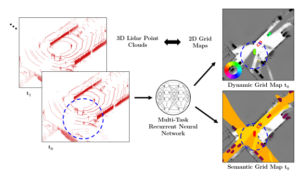 |
Schreiber, Marcel, Belagiannis, Vasileios, Gläser, Claudius, Dietmayer, Klaus, A multi-task recurrent neural network for end-to-end dynamic occupancy grid mapping, 2022 IEEE Intelligent Vehicles Symposium (IV), 2022. |
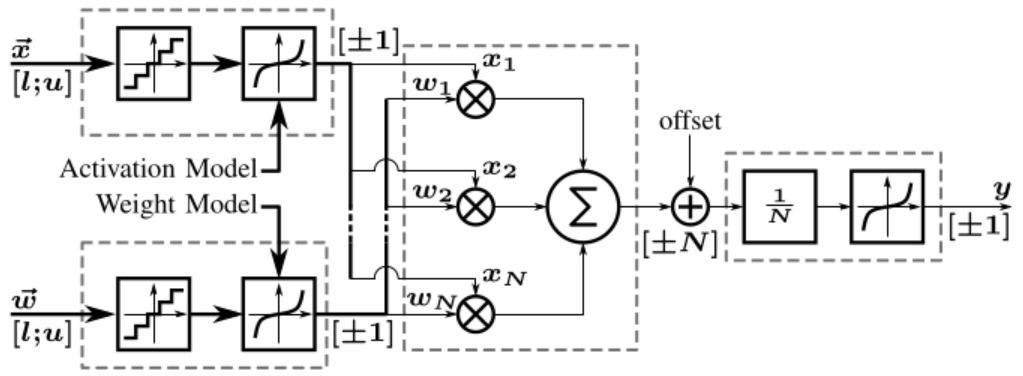 |
Conrad, Joschua, Jiang, Biyi, Kässer, Paul, Belagiannis, Vasileios, Ortmanns, Maurits, Nonlinearity Modeling for Mixed-Signal Inference Accelerators in Training Frameworks, 2021 28th IEEE International Conference on Electronics, Circuits, and Systems (ICECS), 2021. |
 |
Cordeiro, F. R., Belagiannis, Vasileios, Reid, Ian, Carneiro, Gustavo, PropMix: Hard Sample Filtering and Proportional MixUp for Learning with Noisy Labels, The 32nd British Machine Vision Conference, 2021. |
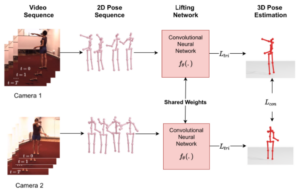 |
Bouazizi, Arij, Kressel, Ulrich, Belagiannis, Vasileios, Learning Temporal 3D Human Pose Estimation with Pseudo-Labels, 2021 17th IEEE International Conference on Advanced Video and Signal Based Surveillance (AVSS), 2021. |
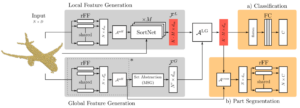 |
Engel, Nico, Belagiannis, Vasileios, Dietmayer, Klaus, Point Transformer, IEEE Access, 2021. |
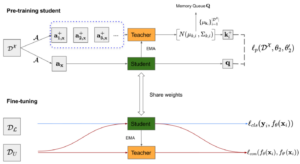 |
Liu, Fengbei, Tian, Yu, Cordeiro, Filipe R, Belagiannis, Vasileios, Reid, Ian, Carneiro, Gustavo, Self-supervised mean teacher for semi-supervised chest x-ray classification, International Workshop on Machine Learning in Medical Imaging, 2021. |
 |
Wiederer, Julian, Bouazizi, Arij, Troina, Marco, Kressel, Ulrich, Belagiannis, Vasileios, Anomaly Detection in Multi-Agent Trajectories for Automated Driving, Conference on Robot Learning, 2022. |
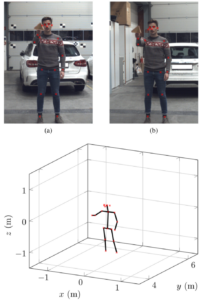 |
Kern, Nicolai, Holzbock, Adrian, Grebner, Timo, Belagiannis, Vasileios, Dietmayer, Klaus, Waldschmidt, Christian, A ground truth system for radar measurements of humans, 2022 14th German Microwave Conference (GeMiC), 2022. |
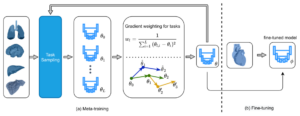 |
Farshad, Azade, Makarevich, Anastasia, Belagiannis, Vasileios, Navab, Nassir, MetaMedSeg: Volumetric Meta-learning for Few-Shot Organ Segmentation, MICCAI Workshop on Domain Adaptation and Representation Transfer, 2022. |
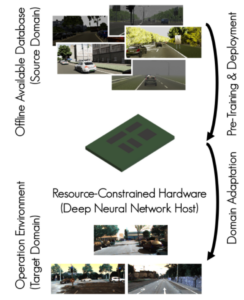 |
Hornauer, Julia, Nalpantidis, Lazaros, Belagiannis, Vasileios, Visual Domain Adaptation for Monocular Depth Estimation on Resource-Constrained Hardware, Proceedings of the IEEE/CVF International Conference on Computer Vision (ICCV) Workshops, 2021. |
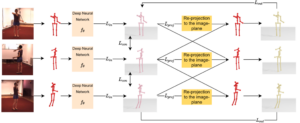 |
Bouazizi, Arij, Wiederer, Julian, Kressel, Ulrich, Belagiannis, Vasileios, Self-supervised 3d human pose estimation with multiple-view geometry, 2021 16th IEEE International Conference on Automatic Face and Gesture Recognition (FG 2021), 2021. |
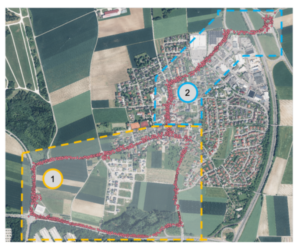 |
Engel, Nico, Belagiannis, Vasileios, Dietmayer, Klaus, Attention-based Vehicle Self-Localization with HD Feature Maps, 2021 IEEE International Intelligent Transportation Systems Conference (ITSC), 2021. |
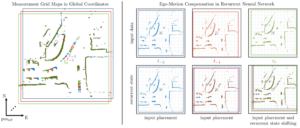 |
Schreiber, Marcel, Belagiannis, Vasileios, Gläser, Claudius, Dietmayer, Klaus, Dynamic Occupancy Grid Mapping with Recurrent Neural Networks, 2021 IEEE International Conference on Robotics and Automation (ICRA), 2021. |
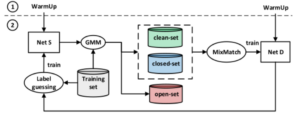 |
Sachdeva, Ragav, Cordeiro, Filipe R, Belagiannis, Vasileios, Reid, Ian, Carneiro, Gustavo, EvidentialMix: Learning with Combined Open-set and Closed-set Noisy Labels, Proceedings of the IEEE/CVF Winter Conference on Applications of Computer Vision, 2021. |
 |
Werner Teich,Ruiqi Liu,Vasileios Belagiannis, Deep Learning versus High-order Recurrent Neural Network based Decoding for Convolutional Codes, GLOBECOM 2020 – 2020 IEEE Global Communications Conference, 2020. |
 |
Youssef Dawoud,Julia Hornauer,Gustavo Carneiro,Vasileios Belagiannis, Few-Shot Microscopy Image Cell Segmentation, Joint European Conference on Machine Learning and Knowledge Discovery in Databases, 2020. |
 |
Leslie Casas,Attila Klimmek,Nassir Navab,Vasileios Belagiannis, Adversarial Signal Denoising with Encoder-Decoder Networks, 2020 28th European Signal Processing Conference (EUSIPCO), 2021. |
 |
Wiederer, Julian, Bouazizi, Arij, Kressel, Ulrich, Belagiannis, Vasileios, Traffic Control Gesture Recognition for Autonomous Vehicles, 2020 IEEE/RSJ International Conference on Intelligent Robots and Systems (IROS), 2020. |
 |
Strohbeck, Jan, Belagiannis, Vasileios, Müller, Johannes, Herrmann, Martin, Schreiber, Marcel, Buchholz, Michael, Multiple Trajectory Prediction with Deep Temporal and Spatial Convolutional Neural Networks, 2020 IEEE/RSJ International Conference on Intelligent Robots and Systems (IROS), 2020. |
 |
Horn, Markus, Engel, Nico, Belagiannis, Vasileios, Buchholz, Michael, Dietmayer, Klaus, DeepCLR: Correspondence-Less Architecture for Deep End-to-End Point Cloud Registration, 2020 IEEE 23rd International Conference on Intelligent Transportation Systems (ITSC), 2020. |
 |
Schreiber, Marcel, Belagiannis, Vasileios, Gläser, Claudius, Dietmayer, Klaus, Motion Estimation in Occupancy Grid Maps in Stationary Settings Using Recurrent Neural Networks, 2020 IEEE International Conference on Robotics and Automation (ICRA), 2020. |
 |
Nico Engel,Stefan Hoermann,Markus Horn,Vasileios Belagiannis,Klaus Dietmayer, DeepLocalization: Landmark-based Self-Localization with Deep Neural Networks, 2019 IEEE Intelligent Transportation Systems Conference (ITSC), 2019. |
 |
Johannes Müller,Martin Herrmann,Jan Strohbeck,Vasileios Belagiannis,Michael Buchholz, {LACI:} Low-effort Automatic Calibration of Infrastructure Sensors, 2019 IEEE Intelligent Transportation Systems Conference (ITSC), 2019. |
 |
Irtiza Hasan,Francesco Setti,Theodore Tsesmelis,Vasileios Belagiannis,Sikandar Amin,Alessio Del Bue,Marco Cristani,Fabio Galasso, Forecasting People Trajectories and Head Poses by Jointly Reasoning on Tracklets and Vislets, IEEE Transactions on Pattern Analysis and Machine Intelligence, 2019. |
 |
Felix Achilles,Federico Tombari,Vasileios Belagiannis,Anna Mira Loesch,Soheyl Noachtar,Nassir Navab, Convolutional neural networks for real-time epileptic seizure detection, Computer Methods in Biomechanics and Biomedical Engineering: Imaging & Visualization, 2018. |
 |
Vasileios Belagiannis,Azade Farshad,Fabio Galasso, Adversarial Network Compression, Computer Vision – {ECCV} 2018 Workshops – Munich, Germany, September 8-14, 2018, Proceedings, Part {IV}, 2018. |
 |
Vasileios Belagiannis,Andrew Zisserman, Recurrent Human Pose Estimation, 2017 12th IEEE International Conference on Automatic Face & Gesture Recognition (FG 2017), 2017. |
 |
Christoph Baur,Fausto Milletari,Vasileios Belagiannis,Nassir Navab,Pascal Fallavollita, Automatic 3D reconstruction of electrophysiology catheters from two-view monoplane C-arm image sequences, International journal of computer assisted radiology and surgery, 2016. |
 |
Nicola Rieke,David Joseph Tan,Chiara Amat di San Filippo,Federico Tombari,Mohamed Alsheakhali,Vasileios Belagiannis,Abouzar Eslami,Nassir Navab, Real-time localization of articulated surgical instruments in retinal microsurgery, Medical Image Analysis, 2016. |
 |
Vasileios Belagiannis,Xinchao Wang,Horesh Ben Shitrit,Kiyoshi Hashimoto,Ralf Stauder,Yoshimitsu Aoki,Michael Kranzfelder,Armin Schneider,Pascal Fua,Slobodan Ilic,Hubertus Feussner,Nassir Navab, Parsing human skeletons in an operating room, Machine Vision and Applications, 2016. |
 |
Vasileios Belagiannis,Sikandar Amin,Mykhaylo Andriluka,Bernt Schiele,Nassir Navab,Slobodan Ilic, 3D Pictorial Structures Revisited: Multiple Human Pose Estimation, IEEE Transactions on Pattern Analysis and Machine Intelligence, 2016. |
 |
Shadi Albarqouni,Christoph Baur,Felix Achilles,Vasileios Belagiannis,Stefanie Demirci,Nassir Navab, AggNet: Deep Learning From Crowds for Mitosis Detection in Breast Cancer Histology Images, IEEE transactions on medical imaging, 2016. |
 |
Iro Laina, Christian Rupprecht,Vasileios Belagiannis,Federico Tombari,Nassir Navab, Deeper Depth Prediction with Fully Convolutional Residual Networks, 2016 Fourth international conference on 3D vision (3DV), 2016. |
 |
Vasileios Belagiannis,Christian Rupprecht,Gustavo Carneiro,Nassir Navab, Robust Optimization for Deep Regression, Proceedings of the IEEE international conference on computer vision, 2015. |
 |
Falk Schubert,Daniele Casaburo,Dirk Dickmanns,Vasileios Belagiannis, Revisiting Robust Visual Tracking Using Pixel-Wise Posteriors, International Conference on Computer Vision Systems, 2015. |
 |
Nissler, Christian, Mouriki, Nikoleta, Castellini, Claudio, Belagiannis, Vasileios, Navab, Nassir, OMG: introducing optical myography as a new human machine interface for hand amputees, 2015 IEEE International Conference on Rehabilitation Robotics (ICORR), 2015. |
 |
Achilles, Felix, Belagiannis, Vasileios, Tombari, Federico, Loesch, Anna Mira, Cunha, Joao Paulo, Navab, Nassir, Noachtar, Soheyl, Deep convolutional neural networks for automatic identification of epileptic seizures in infrared and depth images, Journal of the Neurological Sciences, 2015. |
 |
Mehmet Yigitsoy,Vasileios Belagiannis,A. Djurka,Amin Katouzian,Slobodan Ilic,E. Pernus,Abouzar Eslami,Nassir Navab, Random ferns for multiple target tracking in microscopic retina image sequences, 2015 IEEE 12th International Symposium on Biomedical Imaging (ISBI), 2015. |
 |
Lichao Wang,Vasileios Belagiannis,Carsten Marr,Fabian J. Theis,Guang{-}Zhong Yang,Nassir Navab, Anatomic-landmark detection using graphical context modelling, 2015 IEEE 12th International Symposium on Biomedical Imaging (ISBI), 2015. |
 |
Nicola Rieke,David Joseph Tan,Mohamed Alsheakhali,Federico Tombari,Chiara Amat di San Filippo,Vasileios Belagiannis,Abouzar Eslami,Nassir Navab, Surgical Tool Tracking and Pose Estimation in Retinal Microsurgery, International Conference on Medical Image Computing and Computer-Assisted Intervention, 2015. |
 |
Vasileios Belagiannis,Christian Amann,Nassir Navab,Slobodan Ilic, Holistic Human Pose Estimation with Regression Forests, International Conference on Articulated Motion and Deformable Objects, 2014. |
 |
Vasileios Belagiannis,Sikandar Amin,Mykhaylo Andriluka,Bernt Schiele,Nassir Navab,Slobodan Ilic, 3D Pictorial Structures for Multiple Human Pose Estimation, Proceedings of the IEEE Conference on Computer Vision and Pattern Recognition, 2014. |
 |
Vasileios Belagiannis,Xinchao Wang,Bernt Schiele,Pascal Fua,Slobodan Ilic,Nassir Navab, Multiple Human Pose Estimation with Temporally Consistent 3D Pictorial Structures, European Conference on Computer Vision Workshops, 2014. |
 |
Fausto Milletari,Vasileios Belagiannis,Nassir Navab,Pascal Fallavollita, Fully Automatic Catheter Localization in C-Arm Images Using L1-Sparse Coding, International Conference on Medical Image Computing and Computer-Assisted Intervention, 2014. |
 |
Vasileios Belagiannis,Falk Schubert,Nassir Navab,Slobodan Ilic, Segmentation Based Particle Filtering for Real-Time 2D Object Tracking, European Conference on Computer Vision, 2012. |
 |
Stauder, Ralf, Belagiannis, Vasileios, Schwarz, Loren, Bigdelou, Ali, Soehngen, Eric, Ilic, Slobodan, Navab, Nassir, A user-centered and workflow-aware unified display for the operating room, MICCAI Workshop on Modeling and Monitoring of Computer Assisted Interventions (M2CAI), 2012. |
 |
Rigas Kouskouridas,Nikolaos Kyriakoulis,Dimitrios Chrysostomou,Vasileios Belagiannis,Spyridon G. Mouroutsos,Antonios Gasteratos, The Vision System of the {ACROBOTER} Project, International Conference on Intelligent Robotics and Applications, 2009. |
 |
Kouskouridas, Rigas, Belagiannis, Vasileios, Gasteratos, Antonios, Kyriakoulis, Nikolaos, Chrysostomou, Dimitrios, Iosifidis, Alexandros, Karakasis, Evaggelos, Badekas,Efthimios, Mouroutsos, Spyridon G, Intelligent integrated vision system for indoor robotics applications, 5th, 2009. |
 |
Belagiannis, Vasileios, Gasteratos, Antonios, A real-time visual detection and tracking system, 3rd Pan-Hellenic Student Conference in Informatics, 2009. |
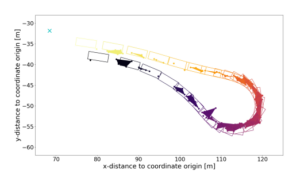 |
Tsaregorodtsev, Alexander, Buchholz, Michael, Belagiannis, Vasileios, Automated Automotive Radar Calibration With Intelligent Vehicles, arXiv preprint arXiv:2306.13323, 2023. |
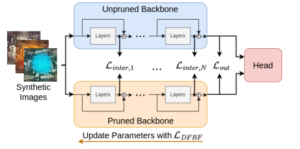 |
Holzbock, Adrian, Hegde, Achyut, Dietmayer, Klaus, Belagiannis, Vasileios, Data-Free Backbone Fine-Tuning for Pruned Neural Networks, arXiv preprint arXiv:2306.12881, 2023. |
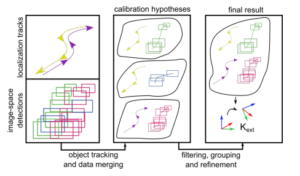 |
Tsaregorodtsev, Alexander, Holzbock, Adrian, Strohbeck, Jan, Buchholz, Michael, Belagiannis, Vasileios, Automated Static Camera Calibration with Intelligent Vehicles, arXiv preprint arXiv:2304.10814, 2023. |
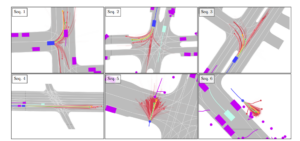 |
Schmidt, Julian, Huissel, Pascal, Wiederer, Julian, Jordan, Julian, Belagiannis, Vasileios, Dietmayer, Klaus, RESET: Revisiting Trajectory Sets for Conditional Behavior Prediction, arXiv preprint arXiv:2304.05856, 2023. |
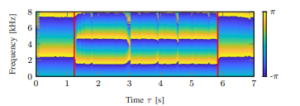 |
Briegleb, Annika, Haubner, Thomas, Belagiannis, Vasileios, Kellermann, Walter, Localizing Spatial Information in Neural Spatiospectral Filters, arXiv preprint arXiv:2303.08052, 2023. |
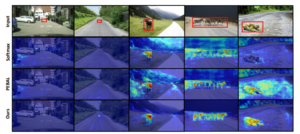 |
Liu, Yuyuan, Ding, Choubo, Tian, Yu, Pang, Guansong, Belagiannis, Vasileios, Reid, Ian, Carneiro, Gustavo, Residual Pattern Learning for Pixel-wise Out-of-Distribution Detection in Semantic Segmentation, arXiv preprint arXiv:2211.14512, 2022. |






